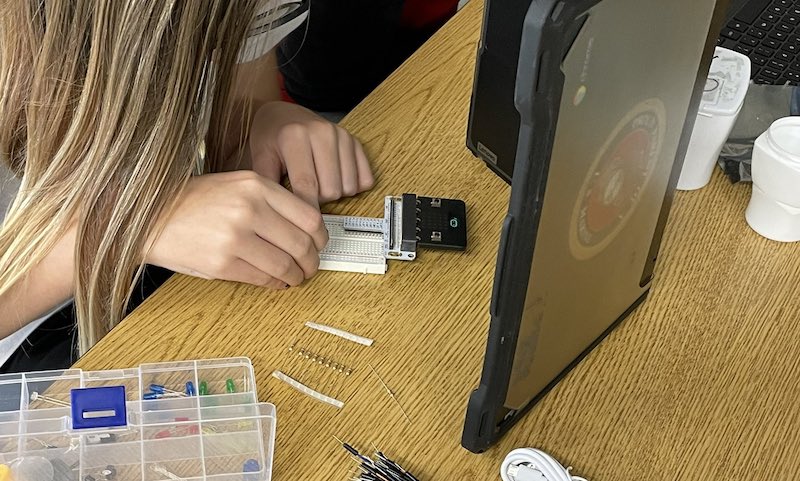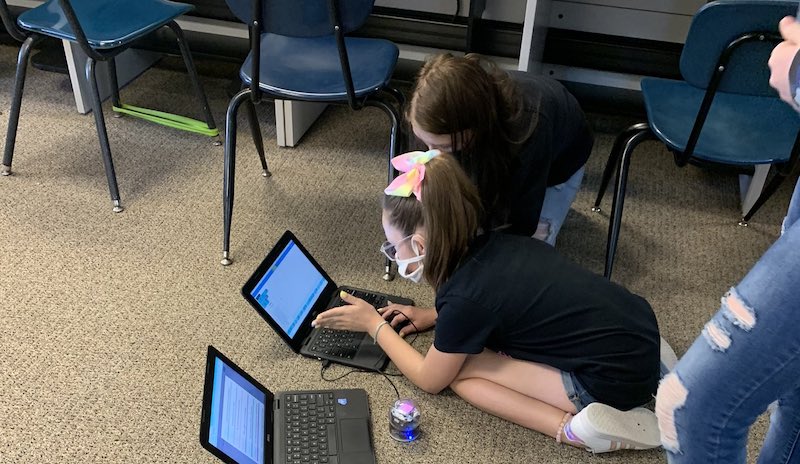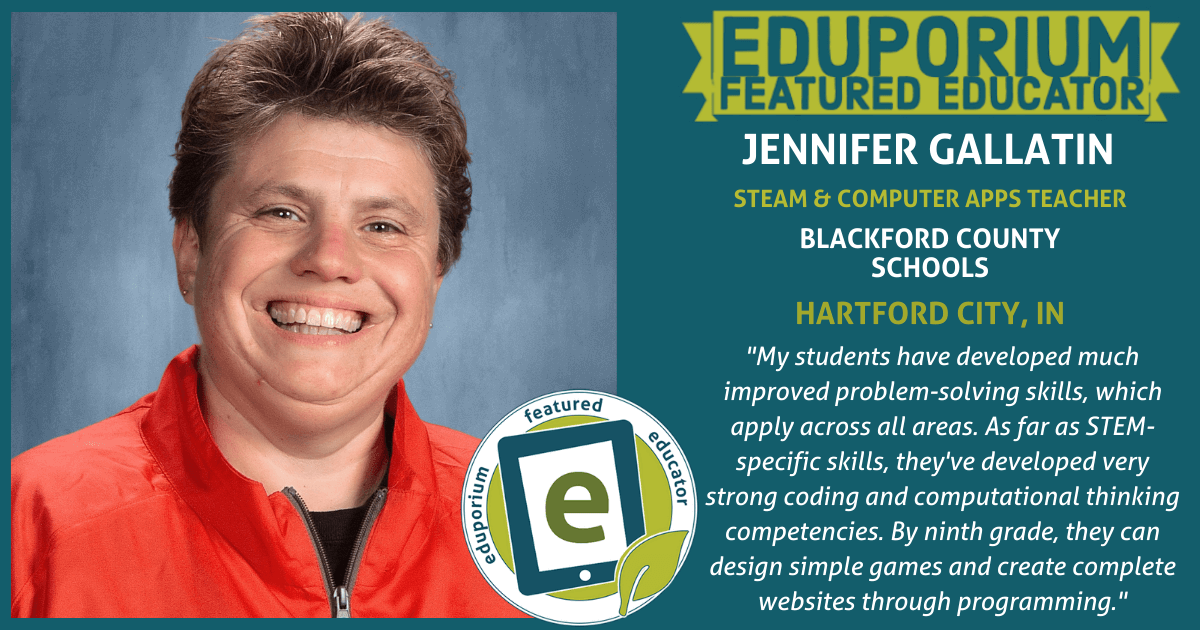To kick off the new month, we're excited to introduce another Eduporium Featured Educator to our online community. This June, we are highlighting the efforts of Jennifer Gallatin, a STEAM teacher in the Blackford County School System (Indiana). Jennifer works largely with middle school students to help them build key STEM skills through real-world experiences. Whether it's introducing them to coding and robotics or some digital design experiences using CAD tools, like TinkerCAD, she's helped them develop valuable problem-solving skills and increased the interest level many of them have in computer science. Check out all of her accomplishments—and you might even find some inspiration for new projects in your own classroom!
Jennifer Gallatin
STEAM and Computer Apps Teacher, Blackford County Schools, Hartford City, IN
Q&A:
Please share any innovative technology project(s) you've completed with your students or plan to complete as well as the skills they've learned.
I design a majority of my teaching through projects that incorporate as many standards for both computer science and other academic areas as possible. My third and fourth graders use the Ozobot Evo robots to learn basic coding concepts, including both loops and functions. Also, my fourth graders have completed a virtual Amazon warehouse simulator, programming robots to pull and complete orders. Finally, my fifth graders tried block-based coding to create games and a variety of other programs through the code.org platform and subsequently transfer those skills to programming Sphero robots.

Beyond that, my fifth and sixth grade students are learning about basic JavaScript skills, drawing pictures, completing basic animations, and ultimately designing or writing out projects form scratch to demonstrate these skills. They take the animal from their JS projects and use CAD software to design the 3D animals on TinkerCAD. Finally, the seventh and eighth graders study a variety of relevant disciplines in STEAM classes, including engineering in bridge designs, coding, web design, and key basics of drone flight. A lot of them have even completed the TRUST course and received their TRUST Safety Test Completion Certificates.
What is a challenge you have faced or are facing with helping students develop STEM skills?
What resources have you used in your instruction or are in need of?
The major challenges I'll have are coming up with enough resources, such as licenses for software, enough robots or drones for this entire group, and other tough logistical issues. I use a variety of sources, including school funds, DonorsChoose campaigns, and, ultimately, personal funds. Finding funds in school budgets is a big challenge for so many educators. Especially when it comes to implementing innovative educational experiences, high costs of tech tools, unfortunately, often create barriers.

What are some of the real-world skills you've seen students develop through personalized learning?
How can students apply them in the future?
When using technology in their learning, I've seen the students greatly improve their problem-solving skills, which apply across all areas. As far as their STEAM-specific skills, they have developed very strong coding and computational thinking skills. By ninth grade, they can design simple games and create complete web sites through programming in many cases. In addition, they also learn to develop basic drone piloting and programming skills.
What interests you most about Eduporium's offerings?
I like the wide variety of items available through the Eduporium store. As you'll see just from exploring their website, they offer more than just technologies for one area of STEM education. Being able to find different classroom robots, for example, or computer science, virtual reality, and 3D printing tools helps to make the Eduporium store a top resource for many educators and instructional technologists.
We sincerely thank Jennifer for sharing her experiences and insights on both STEM and computer science education with our community. We hope these features continue to provide educators with future-focused classroom goals, challenges, and curiosities some confidence and inspiration to explore more educational technology solutions. If you'd like to apply to be an Eduporium Featured Educator, we're always accepting applications. It takes just a few minutes to fill it out and you'll be in consideration for the next feature. Feel free to share the application link with any other deserving teacher you know as well. Also, please follow us on Twitter and Instagram for more!



